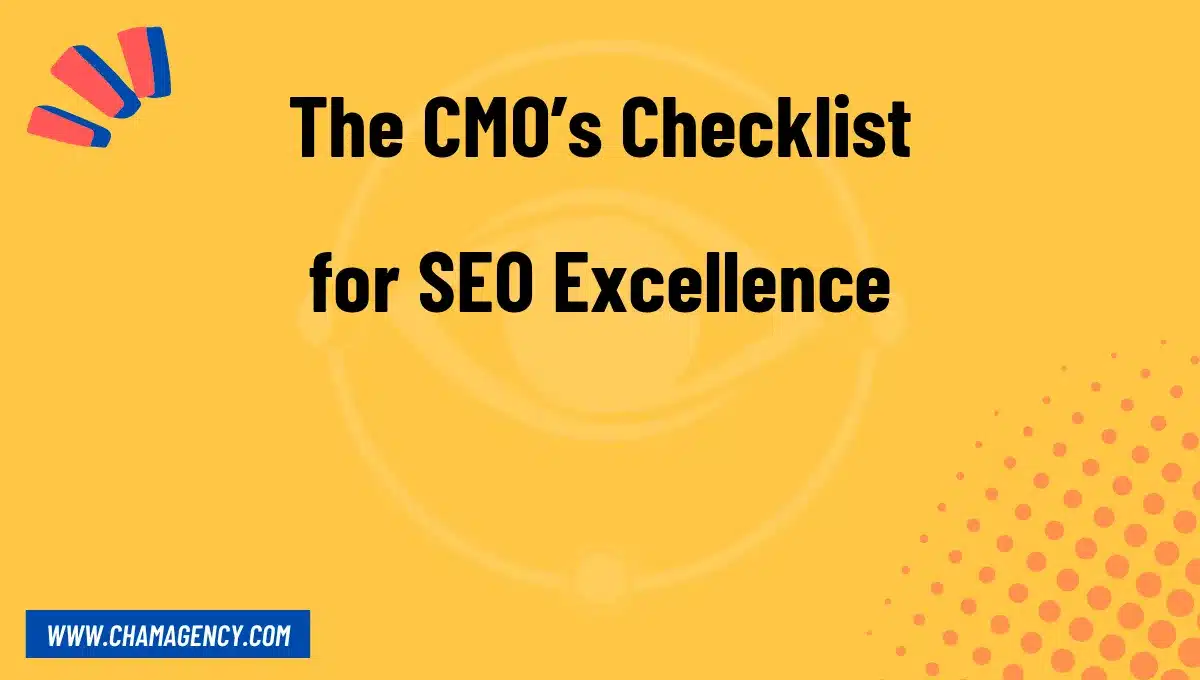In today’s digital world, search engine optimization (SEO) plays a crucial role in the success of any online business. As a CMO, it is essential to understand the ins and outs of SEO to ensure your company’s website ranks highly in search engine results and attracts targeted organic traffic. To help you achieve SEO excellence, we have compiled a checklist of key factors to consider:
1. Keyword Research and Analysis
The first step towards SEO excellence is conducting thorough keyword research and analysis. Identify relevant keywords that potential customers are likely to search for when looking for products or services similar to what your company offers. Utilize online tools like Google Keyword Planner or SEMrush to find keywords with high search volumes and low competition.
Once you have a list of keywords, strategically incorporate them into your website’s content, meta tags, headings, and URLs. However, be careful not to overstuff keywords, as this can negatively impact user experience and search engine rankings.
2. On-Page Optimization
On-page optimization involves optimizing various elements within your website to improve its visibility to search engines. This includes optimizing URL structures, title tags, meta descriptions, header tags, and image alt text. Make sure your content is well-structured with clear headings and subheadings, facilitating easy navigation for both users and search engines.
Additionally, focus on creating engaging and informative content that provides value to your audience. Remember to write for humans rather than search engines, as user experience is a crucial ranking factor. Incorporate internal and external links to enhance your website’s credibility and authority.
3. Technical SEO
To ensure optimal website performance and crawlability, pay attention to technical SEO aspects. Optimize your website for mobile devices, as mobile-friendliness is a significant ranking factor for search engines. Conduct regular site audits to identify and fix any technical issues like broken links, duplicate content, or slow page load speeds.
Implement structured data markup for search engines to better understand your content. This will improve the visibility of rich snippets in search results, making your website more appealing to potential visitors.
4. Content Marketing and Link Building
Content marketing and link building are vital components of SEO excellence. Craft valuable and shareable content that aligns with your target audience’s interests and needs. Publish blog posts, articles, videos, infographics, and other forms of content regularly to attract and engage visitors.
Build relationships with authoritative websites and influencers in your industry to earn high-quality backlinks. These backlinks act as endorsements for your content, signaling to search engines that your website is trustworthy and valuable.
5. User Experience and Engagement
Search engines prioritize websites that provide a positive user experience. Ensure your website is visually appealing, easy to navigate, and loads quickly across all devices. Optimize your website’s design and layout, incorporating intuitive menus, clear call-to-actions, and engaging visuals.
Encourage user engagement through social media integration, comment sections, and interactive elements. Increase dwell time by providing in-depth, informative, and engaging content that keeps visitors on your website for longer periods.
6. Analytics and Monitoring
Regularly monitor and analyze your website’s SEO performance using tools like Google Analytics and Google Search Console. Track key metrics such as organic traffic, keyword rankings, bounce rates, and conversion rates. Use this data to identify areas for improvement and adjust your SEO strategies accordingly.
Keep an eye on your competitors’ SEO efforts to stay ahead of the curve. Analyze their keywords, backlinks, and content strategies to gain insights and enhance your own SEO tactics.
Conclusion
Achieving SEO excellence requires a comprehensive approach that considers various factors like keyword research, on-page optimization, technical SEO, content marketing, user experience, and analytics. By following this checklist, CMOs can ensure their company’s website is effectively optimized for search engines and drives targeted organic traffic. Stay up-to-date with the latest SEO trends and continue refining your strategies to maintain a competitive edge in the digital landscape.





